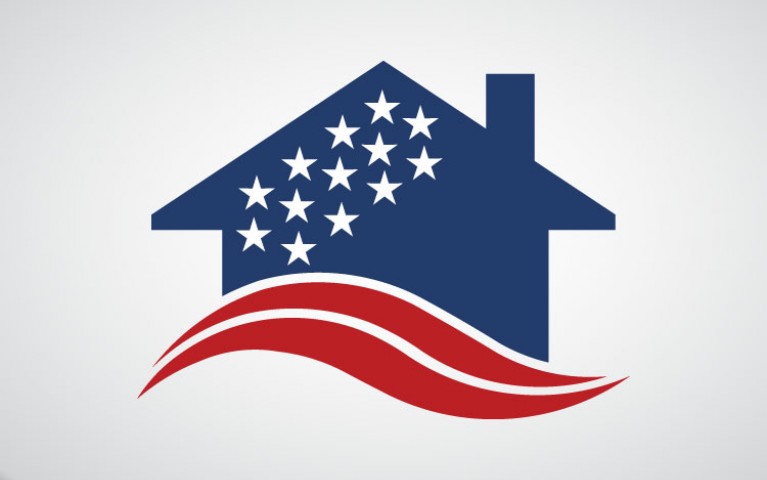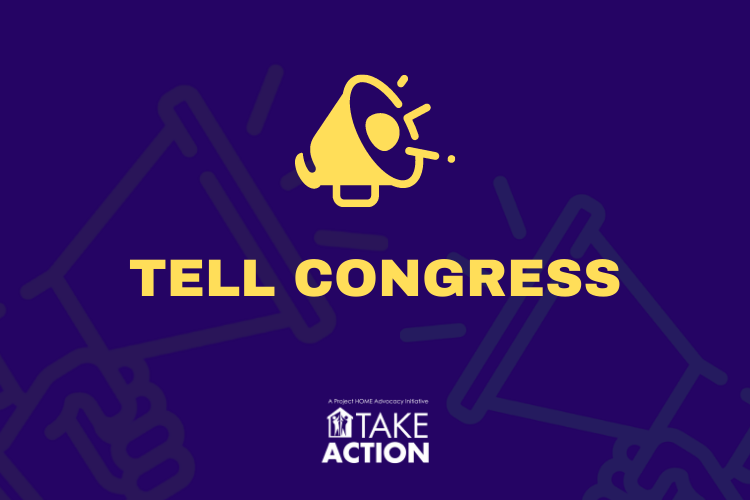Resources to End Homelessness

There is an unprecedented opportunity in front of us to help millions of Americans break the cycle of homelessness and poverty.
This week, as the White House and Congress struggle to come to consensus on the Build Back Better plan, the federal government also unveiled their new “House America” initiative. With these two efforts and other recent changes, there is an unprecedented opportunity in front of us to help millions of Americans break the cycle of homelessness and poverty. Philadelphia Mayor Jim Kenney was among the first to sign on to the House America agenda and publicly supported the Build Back Better plan.
Build Back Better
Negotiations are happening right now on the "Build Back Better Act" - the $3.5 trillion infrastructure package proposed by the House of Representatives. This plan is designed to lower costs of housing, healthcare, higher education, childcare, and other services; create jobs including infrastructure and green jobs and address teacher shortages; and lower taxes for the majority of Americans. This plan is an infrastructure and job-creation companion to the American Rescue Plan passed in the spring. Please take a moment to reach out right away to your representatives and senators to tell them you support the proposed $327 billion in new affordable housing funding.
House America
House America is a new joint initiative of the Department of Housing and Urban Development and the Interagency Council on Homelessness to invite state and local governments and nonprofit organizations to sign on to focus American American Rescue Plan and other resources on ending and preventing homelessness for individuals and families. House America is the federal government’s direct response to the crisis of homelessness, which was rising even before the arrival of the COVID-19 pandemic. In March, HUD released its 2020 Annual Homeless Assessment Report Part 1 to Congress, which found that more than 580,000 people experienced homelessness in the United States on a single night in January 2020, prior to the pandemic. COVID-19 has created greater urgency to address homelessness, given the heightened risks faced by people experiencing homelessness. At the same time, COVID-19 has slowed re-housing activities due to capacity issues and impacts on rental market vacancies.
Additional information on House America
House America: An All-Hands-on-Deck Effort to Address the Nation’s Homelessness Crisis is a federal initiative in which the U.S. Department of Housing and Urban Development (HUD) and the U.S. Interagency Council on Homelessness (USICH) are inviting mayors, city and county leaders, tribal nation leaders, and governors into a national partnership. House America will utilize the historic investments provided through the American Rescue Plan to address the crisis of homelessness through a Housing First approach.
Through the American Rescue Plan, communities now have historic resources—70,000 emergency housing vouchers and $5 billion in HOME Investment Partnership grants—to help more Americans obtain the safety of a stable home. Communities also have resources through the CARES Act, the Consolidated Appropriations Act of 2021, and other state, tribal, and local resources to re-house people experiencing homelessness and create additional dedicated housing units to address homelessness.
House America provides communities with the focus, resolve, and technical know-how needed to deploy these resources to maximize impact.
Additional Information on Build Back Better
Nearly 11 million Americans spend more than half of their income on rent. This is a pivotal moment in our work to build a more equitable country, so make sure you voice is heard by calling your representatives and senators right now and telling them that you support at least $327 billion in housing and community development funding as a part of the bill! Among the key programs supported by the housing and community development allocation in the House budget resolution are:
• $90 billion for rental assistance
• $80 billion to preserve public housing
• $37 billion for the National Housing Trust Fund
• $35 billion for the HOME program, an historic level of flexible investment addressing local housing and homeownership needs;
• $20 billion for a new federal tax credit, based on the Neighborhood Homes Investment Act (H.R. 2143/S. 98), to support new construction or substantial rehabilitation of single-family owner-occupied homes in distressed communities;
• $10 billion for a newly proposed Community Revitalization Fund to support community-led redevelopment investments to restore vacant buildings for social services and community entrepreneurs, provide shared amenities, upgrade access to natural areas, remove toxic waste, build new parks, greenways and community parks;
• $5 billion for an incentive program to encourage the removal of exclusionary zoning and harmful land use policies;
• $2 billion for a new Community Development Block Grant program for resiliency investments in low- and moderate-income communities vulnerable to climate change.
(Special thanks to the Philadelphia Association of Community Development Corporations for the information above)
